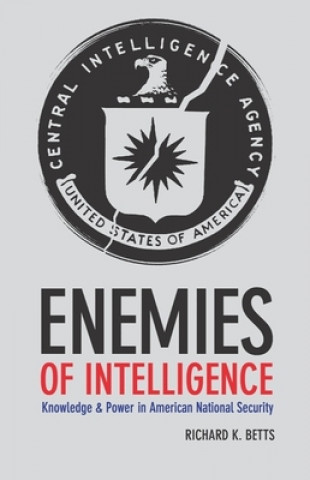
Kód: 04558420
Enemies of Intelligence
Autor Richard K. Betts
The tragic events of September 11, 2001, and the false assessment of Saddam Hussein's weapons arsenal were terrible reminders that good information is essential to national security. These failures convinced the American public th ... celý popis
- Jazyk:
 Angličtina
Angličtina - Väzba: Pevná
- Počet strán: 264
Nakladateľ: Columbia University Press, 2007
- Viac informácií o knihe

152.87 €

Skladom u dodávateľa v malom množstve
Odosielame za 9 - 13 dní
Potrebujete viac kusov?Ak máte záujem o viac kusov, preverte, prosím, najprv dostupnosť titulu na našej zákazníckej podpore.
Pridať medzi želanie
Mohlo by sa vám tiež páčiť
-

Encounters of Sherlock Holmes
10.24 € -13 % -

Energy Technology 2013
123.54 € -

File on H
12.60 € -13 % -

First Ypres 1914
23.16 € -5 % -

Envirotherafamilial Collaborative Care Paradigm
67.46 € -

Foundations of Hegel's Social Theory
73.30 € -

Avondale
25.93 € -1 %
Darčekový poukaz: Radosť zaručená
- Darujte poukaz v ľubovoľnej hodnote, a my sa postaráme o zvyšok.
- Poukaz sa vzťahuje na všetky produkty v našej ponuke.
- Elektronický poukaz si vytlačíte z e-mailu a môžete ho ihneď darovať.
- Platnosť poukazu je 12 mesiacov od dátumu vystavenia.
Viac informácií o knihe Enemies of Intelligence
Nákupom získate 377 bodov
 Anotácia knihy
Anotácia knihy
The tragic events of September 11, 2001, and the false assessment of Saddam Hussein's weapons arsenal were terrible reminders that good information is essential to national security. These failures convinced the American public that their intelligence system was broken and prompted a radical reorganization of agencies and personnel, but as Richard K. Betts argues in this book, critics and politicians have severely underestimated the obstacles to true reform. One of the nation's foremost political scientists, Betts draws on three decades of work within the U.S. intelligence community to illuminate the paradoxes and problems that frustrate the intelligence process. Unlike America's efforts to improve its defenses against natural disasters, strengthening its strategic assessment capabilities means outwitting crafty enemies who operate beyond U.S. borders. It also requires looking within to the organizational and political dynamics of collecting information and determining its implications for policy. Combining academic research with personal experience, Betts outlines strategies for better intelligence gathering and assessment. He describes how fixing one malfunction can create another; in what ways expertise can be both a vital tool and a source of error and misjudgment; the pitfalls of always striving for accuracy in intelligence, which in some cases can render it worthless; the danger, though unavoidable, of "politicizing" intelligence; and the issue of secrecy--when it is excessive, when it is insufficient, and how limiting privacy can in fact protect civil liberties. Betts argues that when it comes to intelligence, citizens and politicians should focus less on consistent solutions and more on achieving a delicate balance between conflicting requirements. He also emphasizes the substantial success of the intelligence community, despite its well-publicized blunders, and highlights elements of the intelligence process that need preservation and protection. Many reformers are quick to respond to scandals and failures without detailed, historical knowledge of how the system works. Grounding his arguments in extensive theory and policy analysis, Betts takes a comprehensive and realistic look at how knowledge and power can work together to face the intelligence challenges of the twenty-first century.
 Parametre knihy
Parametre knihy
Zaradenie knihy Knihy po anglicky Society & social sciences Politics & government International relations
152.87 €
- Celý názov: Enemies of Intelligence
- Podnázov: Knowledge and Power in American National Security
- Autor: Richard K. Betts
- Jazyk:
 Angličtina
Angličtina - Väzba: Pevná
- Počet strán: 264
- EAN: 9780231138888
- ISBN: 0231138881
- ID: 04558420
- Nakladateľ: Columbia University Press
- Hmotnosť: 496 g
- Rozmery: 158 × 230 × 23 mm
- Dátum vydania: 06. September 2007
Obľúbené z iného súdka
-

On Palestine
10.65 € -18 % -

Prisoners of Geography
11.17 € -23 % -

World Order
11.37 € -24 % -

International Relations, Global Edition
109.49 € -

Grand Chessboard
23.57 € -
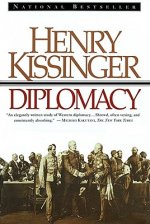
Diplomacy
16.50 € -24 % -

Clash of Civilizations and the Remaking of World Order
16.81 € -15 % -

Hundred-Year Marathon
16.60 € -22 % -

The Spy and the Traitor
10.96 € -24 % -

Understanding the Intelligence Cycle
78.12 € -

Who Rules the World?
11.27 € -25 % -
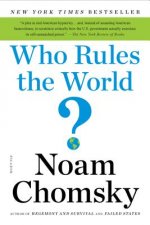
Who Rules the World?
14.24 € -18 % -

Dead Aid
16.70 € -9 % -

World Order
16.40 € -3 % -

Adults In The Room
13.11 € -22 % -

Legacy of Ashes
17.93 € -14 % -

Evolution of Cooperation
19.16 € -

Strategic Vision
16.19 € -21 % -

Secret World
18.34 € -24 % -

Geopolitics and Geoculture
22.14 € -35 % -

Dawn of Eurasia
12.29 € -23 % -
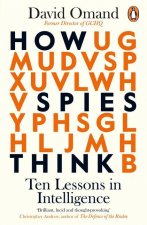
How Spies Think
10.96 € -24 % -

Gaza in Crisis
12.29 € -23 % -

Planetary Cycles Mundane Astrology
19.88 € -

OVERTHROW : AMERICA'S CENTURY OF REGIME
21.11 € -23 % -

Is the EU Doomed?
24.80 € -

Righteous Victims
20.50 € -19 % -

Directorate S
20.19 € -6 % -

Europe's Border Crisis
45.41 € -

America's Strategy in World Politics
73.51 € -

Destroying Libya and World Order
19.88 € -1 % -

My Nationalist Pony
36.90 € -

Critical Practices in International Theory
218.08 € -

amantes del fin del mundo
23.57 € -

American Century and Beyond
20.50 € -18 % -

Heroic Failure
12.60 € -13 % -

Oxford Handbook of the European Union
57.92 € -

Rise and Kill First
16.50 € -24 % -

PEACE TO END ALL PEACE
21.11 € -23 % -
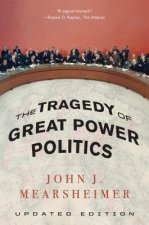
Tragedy of Great Power Politics
21.42 € -9 % -

Countdown to Zero Day
16.91 € -17 % -

Revenge of Geography
18.45 € -21 % -

Political Order and Political Decay
16.60 € -23 % -

Naked Diplomat
14.45 € -23 % -

Against Our Better Judgment
13.22 € -

After the Empire
15.98 € -

Legacy of Ashes
20.91 € -23 % -
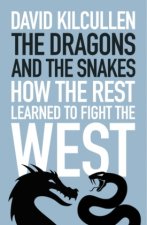
Dragons and the Snakes
32.18 € -10 % -

Oxford IB Diploma Programme: Global Politics Course Book
58.33 €
Osobný odber Bratislava a 2642 dalších
Copyright ©2008-24 najlacnejsie-knihy.sk Všetky práva vyhradenéSúkromieCookies


 21 miliónov titulov
21 miliónov titulov Vrátenie do mesiaca
Vrátenie do mesiaca 02/210 210 99 (8-15.30h)
02/210 210 99 (8-15.30h)